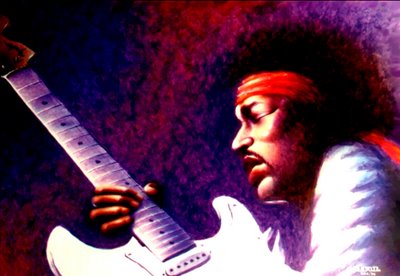Capable of Love

You should not let yourself be confused in your solitude by the fact that there is some thing in you that wants to move out of it. This very wish, if you use it calmly and prudently and like a tool, will help you spread out your solitude over a great distance. Most people have, with the help of conventions, turned their solutions toward what is easy and toward the easiest side of the easy; but it is clear that we must trust in what is difficult; everything alive trusts in it, everything, in Nature grows and defends itself any way it can and is spontaneously itself, tries to be itself at all costs and against all opposition. We know little, but that we must trust in what is difficult is a certainty that will never abandon us; it is good to be solitary, for solitude is difficult; that something is difficult must be one more reason for us to do it.
It is also good to love: because love is difficult. For one human being to love another human being: that is perhaps the most difficult task that has been entrusted to us, the ultimate task, the final test and proof, the work for which all other work is merely preparation. That is why young people, who are beginners in everything, are not yet capable of love: it is something they must learn. With their whole being, with all their forces, gathered around their solitary, anxious, upward-beating heart, they must learn to love. But learning-time is always a long, secluded time, and therefore loving, for a long time ahead and far on into life, is: solitude, a heightened and deepened kind of aloneness for the person who loves. Loving does not at first mean merging, surrendering, and uniting with another person…for what would a union be of two people who are unclarified, unfinished, and still incoherent? It is a high inducement for the individual to ripen, to become something in himself, to become world, to become world in himself for the sake of another person; it is a great, demanding claim on him, something that chooses him and calls him to vast distances. Only in this sense, as the task of working on themselves, may young people use the love that is given to them. Merging and surrendering and every kind of communion is not for them; it is the ultimate, it is perhaps that for which human lives are as yet barely large enough.
But this is what young people are so often and so disastrously wrong in doing: they, who by their very nature are impatient…fling themselves at each other when love takes hold of them…they scatter themselves, just as they are, in all their messiness, disorder, and bewilderment. And what can happen then? What can life do with this heap of half-broken things that they call their communion and that they would like to call their happiness, if that were possible, and their future? And so each of them loses himself for the sake of the other person, and loses the other…and loses the vast distances and possibilities, gives up the approaching and fleeing of gentle, prescient Things in exchange for an unfruitful confusion, out of which nothing more can come; nothing but a bit of disgust, disappointment, and poverty, and the escape into one of the many conventions that have been put up in great numbers like public shelters on this most dangerous road. No area of human experience is so extensively provided with conventions as this one is: there are life-preservers of the most varied invention, boats and water wings; society has been able to create refuges of every sort, for since it preferred to take love life as an amusement, it also had to give it an easy form…cheap, safe, and sure…as public amusements are.
It is true that many young people who love falsely, i.e., simply surrendering themselves and giving up their solitude (the average person will of course always go on doing that), feel oppressed by their failure and want to make the situation they have landed in livable and fruitful in their own, personal way. For their nature tells them that the questions of love, even more than everything else that is important, cannot be resolved publicly and according to this or that agreement; they are questions, intimate questions from one human being to another, which in any case require a new, special, wholly personal answer. But how can they, who have already flung themselves together and can no longer tell whose outlines are whose, who thus no longer possess anything of their own, how can they find a way out of themselves, out of the depths of their already buried solitude?
They act out of mutual helplessness, and then if, with the best of intentions, they try to escape the convention that is approaching them (engagement, marriage, pregnancy, etc.) they fall into the clutches of some less obvious but just as deadly conventional solution. For then everything around them is convention. Wherever people act out of a prematurely fused, muddy communion, every action is conventional: every relation that such confusion leads to has its own convention, however unusual or immoral it may be; even separating would be a conventional step…an impersonal, accidental decision without strength and without fruit.
Whoever looks seriously will find that neither for death, which is difficult, nor for love has any clarification, any solution, any hint of a path been perceived; and for both these tasks, which we carry wrapped up and hand on without opening, there is no general, agreed-upon rule that can be discovered. But in the same measure in which we begin to test life as individuals, these great Things will come to meet us, the individuals, with greater intimacy. The claims that the difficult work of love makes upon our development are greater than life, and we, as beginners, are not equal to them. But if we nevertheless endure and take this love upon us as burden and apprenticeship, instead of losing ourselves in the whole easy and frivolous game behind which people have hidden from the most solemn solemnity of their being, then a small advance and a lightening will perhaps be perceptible to those who come long after us. That would be much.
We are only just now beginning to consider the relation of one individual to a second individual objectively and without prejudice, and our attempts to live such relationships have no model before them. And yet in the changes that time has brought about there are already many things that can help our timid souls.
This advance will transform the love experience, which is now filled with error, will change it from the ground up, and reshape it into a relationship that is meant to be between one human being and another, no longer one that flows from man to woman. And this more human love will resemble what we are now preparing painfully and with great struggle: the love that consists in this: that two solitudes protect and border and greet each other.
And one more thing: Don't think that the great love which was once granted to you, when you were a boy or girl, has been lost…how can you know whether vast and generous wishes didn't ripen in you at that time, and purposes by which you are still living today? I believe that that love remains so strong and intense in your memory because it was your first deep aloneness confronted on your own and the first inner work that you did on your life.













